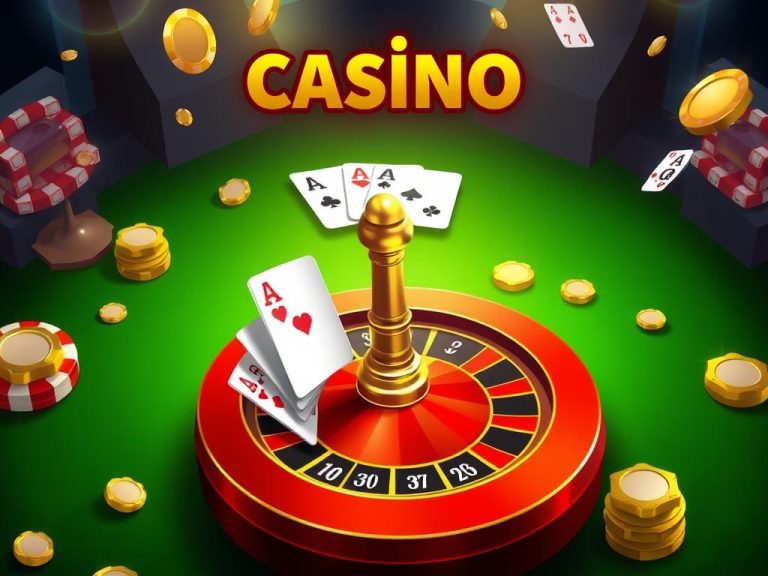The question of what age you can play online casinos determines access to registration, deposits, bonuses, tournaments, and withdrawals. The age filter acts as the first security gateway: the regulator sets the minimum, the platform’s license strengthens the requirements, the cashier blocks payment without confirming the date of birth. Proper understanding of the boundaries reduces the risk of blocks, saves customer support time, and prevents balance freezing for verification.
Regulation framework: three layers of control
There are three levels of age restrictions for playing in online casinos. The first is the country’s law: the basic threshold for gambling products. The second is the license conditions: detailed verification, verification timing, sanctions for allowing minors. The third is the rules of a specific platform: additional filters, geolocation, limits, anti-fraud algorithms. The combination creates the “maximum restrictions”: the strictest threshold applicable simultaneously.
Segmentation by products
Determining the age for playing in online casinos is not equal to a universal “18+”. The law often distinguishes between verticals: casinos, sports betting, lotteries, bingo, fantasy. The highest thresholds apply to casinos, while lotteries and bets may have lower ones. The operator separates access to verticals in the interface, indicating the age next to each product type.
Geography and player status
The question “What age can you play casino games from” changes when changing countries, and within a country, when changing regions. Additionally, the player’s resident or guest status creates significance: tourist zones sometimes apply a separate threshold for non-residents. In this case, a global brand displays the version of rules activated by geolocation.
Age ranges: logic of numbers without myths
The range of thresholds is limited to several categories. “18+” is the minimum adult threshold for digital products. “19+” is a compromise model in some regions. “20+” and “21+” provide increased protection for casinos with high risk of addiction and high betting limits. “25+” is a rare but indicative policy of certain jurisdictions and institutions oriented towards local social norms. The question of what age you can play online casinos almost always falls within one of these ranges.
Why online is stricter than offline
The online sector uses pre-registration verification: systems check the date of birth and name matching with the payment method before the first bet. Land-based venues sometimes limit entry with document checks. Online, the risk of sanctions for allowing minors is higher, so the cashier and profile close access in advance.
Brand practices: what age can you play online casinos
What age can you play online casinos: every player sees the conditions on the showcase of well-known operators. On the main page, there is an age badge; in the footer, a note “18+”, “21+”, or another threshold; in the “Terms & Conditions,” a detailed formulation of “Eligibility/Age Requirements.”
Platforms with a clear showcase and understandable rules: bet365, 888casino, PokerStars Casino, LeoVegas, Unibet, Betway, Mr Green. Regional brands with a similar interface structure: Parimatch, Pin-Up. They indicate the age in three points at once: the footer of the site, the “Responsible Gaming” section, the “Eligibility” point in the rules. The format is the same: age banner, age confirmation checkbox during registration, pre-deposit check.
What the cashier actually does
The cashier module and profile work together. The registration form accepts the date of birth, the cashier checks the age against the product threshold, the KYC module requests a document before the deposit or immediately after the first login. Simultaneously, anti-fraud checks the name match in the profile and on the payment instrument. In case of mismatch, automatic rejection and freezing until clarification.
Regional profiles: practical guidelines without dry tables
The main question remains the same: what age can you play online casinos in different countries?
Europe
Mainstream – “18+” for online products, but casinos in some countries have “20+” or “21+”. Northern markets strengthen self-exclusion and payment control, so document requests arise before any fund movement. Southern resort areas sometimes differentiate between residents and guests: residents have a strict threshold, while guests have a softer one. Within Europe, unique cases with a threshold of 25 for citizens are also encountered.
North America
Online casinos in the USA adhere to the “21+” model in regulated territories. Geolocation blocks unauthorized IPs, KYC confirms identity, and age is verified before access to the lobby. Canada divides access by provinces, often “18/19+”. The corridor depends on provincial rules, so the showcase of government operators indicates the threshold directly in the banner.
Latin America
More often – “18+” for online casinos and bets. Regional laws focus on advertising and funding sources. Banks and payment aggregators implement anti-fraud measures that block attempts to bypass age restrictions through foreign payment methods.
Asia-Pacific region
Casinos have elevated thresholds of “20/21+”, while bets and lotteries have lower ones. A resort city may have separate requirements for residents and guests. Platforms in this cluster pay particular attention to name and payment method matching.
Middle East and Africa
The picture is heterogeneous: from complete prohibition to strict “21+” in permitted areas. Operators in legal “windows” require identification before entering the lobby and rigorously filter traffic by geo.
Documents and processes: what age can you play online casinos
The question of what age you can play online casinos transforms into KYC practice. The document package includes a national passport or ID card, proof of address (utility bill, bank statement), proof of source of funds (masked card, wallet screenshot). The platform reserves the right to request a selfie with the document to prevent identity substitution. Verification proceeds step by step: automatic field checks, manual audit of matches, final mark “access granted.”
Timelines and statuses
Standard cycle: “received” – “under review” – “confirmed” or “clarifications required.” Re-uploading eliminates problems with light/focus, blocked fields, cropped document corners. The sooner the set is prepared, the faster the cashier will open the deposit.
Borderline cases: where errors often occur
The determination of what age you can play online casinos breaks down on details. Common mistakes: registration with someone else’s card, mismatch of owner’s name and profile, attempting to play through a VPN, incomplete KYC set. Anti-fraud detects device patterns, IPs, time zone discrepancies, denies access, and freezes the wallet pending clarification.
Tourist vs. resident
Some markets allow guests under one threshold and hold citizens to another. Registration with a local address automatically triggers a “strict” scenario and tightens filters. A useful tactic is to provide real data and choose the site version for the current jurisdiction.
Age and access self-checklist:
- Open the footer of the chosen platform’s site and find the age badge.
- Go to “Terms & Conditions” and read the “Eligibility/Age” section.
- Verify the account country and actual location with the displayed site version.
- Check the verticals: casinos, bets, lotteries; compare thresholds for each product.
- Clarify differences for residents and guests; consider special rules in resort areas.
- Prepare the KYC set: passport/ID, address confirmation for the last 3 months, payment method confirmation.
- Check the name match on the card/wallet and in the profile; update data if mismatched.
- Enable two-factor authentication in the account, email, and wallets.
- Pass a test validation for the minimum deposit amount after marking “18/19/20/21/25+”.
- Record the application ID and time of file submission to expedite support dialogue.
- Avoid VPNs and proxies; when changing countries, re-enter to load the correct rules.
- In case of dispute, do not make repeat deposits; instead, upload missing documents and wait for status.
Practice scenarios: how to act without errors
Scenarios are easiest to organize based on life situations.
New player with a minimum deposit
Registration with real data, uploading ID and utility bill, selecting local currency in the cashier. Topping up with the minimum amount for access verification, then entering training modes and setting Responsible Gaming limits on time and deposit.
Return after a long break
Restoring access via email and 2FA, updating the address, card confirmation. After document update – test deposit. When asked for “source of funds” – upload a bank statement with masked transaction amounts, confirming a legal source.
Relocation to another country
Log out of the account, log in from the new location, agree to change currency and age threshold, re-upload the KYC package to meet local requirements. The “maximum restrictions” policy means applying a stricter threshold in the new jurisdiction.
How to quickly determine the threshold in an unknown country: what age can you play online casinos
The formula remains constant, the question still sounds the same – “What age can you play in a casino.” Step one: open the showcase and footer, find the age. Step two: go to the rules and finish reading the “Eligibility” section. Step three: open the “Responsible Gaming” page – restrictions and self-exclusion tools are duplicated there. Step four: pass KYC before deposit to avoid surprises on withdrawal. If the interface offers different thresholds for different products – choose available verticals and do not try to bypass blocks.
Responsible gaming and age: not just a number in the profile
The age limit is not the only safeguard. Setting limits, timeouts, time reminders, self-exclusion shapes a safe boundary. Strong discipline is especially important for groups at the lower threshold. Regular breaks, keeping notes on bets, avoiding playing when tired – simple steps that support control.
Workarounds errors and their cost
Attempting to “play before KYC” with subsequent document upload after a big win may seem like a rational time-saving strategy, but in reality, it leads to freezing funds until verification is complete. Using someone else’s card or wallet triggers automatic rejection: the payment aggregator and bank compare the account holder’s name with the profile name. Bypassing geofilters through VPN is detected by multiple signals – device, timezone, browser data. Result: blockage, disputed chargebacks, loss of bonuses.
Short world map without tables: key highlights
Europe – predominantly “18+”, but encounters “20/21+” and rare “25+”. Online casinos in the USA – benchmark “21+”. Canada – “18/19+” by provinces. Asia-Pacific block – more often “20/21+” for casinos with softer thresholds for alternative products. Middle East and Africa – heavily dependent on the country: from prohibition to strict “21+”. The universal recommendation remains the same: check the showcase, read the “Terms,” pass KYC before deposit.
Decision-making working formula
A clear answer to the question of what age you can play online casinos creates a combination of three points: jurisdiction law, license conditions, brand rules. In practice, the “maximum restrictions” apply. The right strategy: open public rules, confirm age before the first deposit, synchronize profile name and payment method, activate 2FA, keep a set of documents at hand. This approach saves time, saves commissions, and resolves conflicts on withdrawal.



